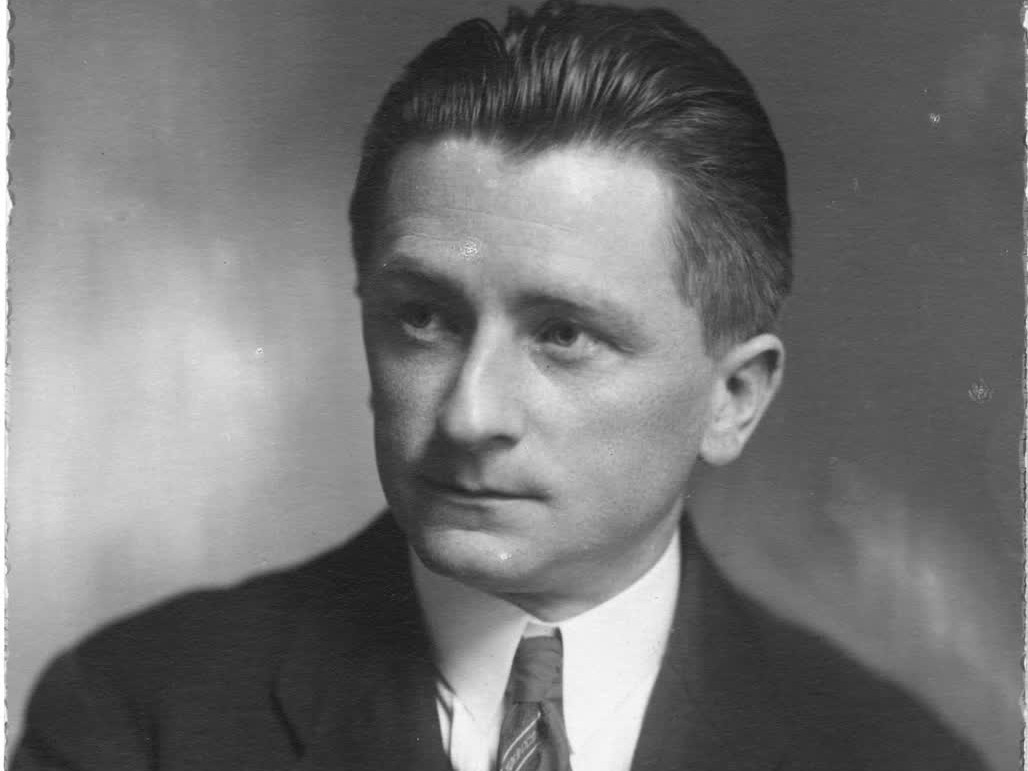
Jānis Mediņš
(09.10.1890 - 04.03.1966 )
I cannot stand blank music paper.
Jānis Mediņš
Jānis Mediņš was born on October 9, 1890 in Riga. The composer was raised in an unusually musical family – the Mediņš family brought a whole three composers into Latvian music culture – including Jānis’ two older brothers Jāzeps and Jēkabs. Their sister Marija was a talented pianist. In 1900, at the age of ten, Jānis Mediņš enrolled at the Riga Zīgerts Music Institute, where he simultaneously studied piano, violin and cello. In 1904, at the age of 14, Mediņš began his career in orchestral music – first as the violinist for the Riga Latvian Society’s orchestra and then as the violist for the Latvju opera orchestra.
During this time, he also became known as a composer. He composed his first songs as soon as 1909, and began work on his opera Uguns un nakts (Fire and Night) in 1913. The opera was hoped to be completed by October 1915, however, harsh events entered into his life. During World War I, Mediņš was the conductor of the army orchestra, and found himself in Siberia at the conclusion of the war. As he wrote in his book, he was only able to endure this thanks to the love and support of his wife, who, on her own shoulders, carried the heavy, canvas bound score of Uguns un nakts through the Siberian snow. Unfortunately, to decrease the weight of the baggage on the way home, approximately 30 other works composed in Siberia had to be burned in the taiga. After returning to his homeland, the composer was actively involved in the development of music culture in the newly founded Latvian state.
At the Latvian Conservatory he led the conducting and instrumentation classes. He was one of the conductors of the Latvian National Opera beginning in 1920, and, from 1928 to even 1944, Jānis Mediņš was the conductor of the newly founded Latvian Radio Orchestra, tirelessly making efforts to popularise Latvian music throughout those years.
After the reoccuption of Latvia in 1944 by the Soviet Union, wishing to retain freedom for himself and his art, Jānis Mediņš, along with his family, fled Latvia in August. For four years, he lived in refugee camps in Germany – Segeberg and Blomberg, and, as of 1948, Jānis Mediņš’s home was Stockholm. During this time, Mediņš mainly composed chamber music.
The creative work of Jānis Mediņš has a significant place in Latvian music culture. In many fields he was the first – J. Mediņš’s Uguns un nakts, along with Alfrēds Kalninš’s Baņuta began the Latvian national classical opera genre, he also provided the first Latvian piano concerto (1932), the first ballet (Mīlas uzvara [The Victory of Love]), the first piano trio (1930), and the first single movement symphonic sketch (Imanta, 1923). Jānis Mediņš created music seemingly easily, spontaneously, proven by the impressive number of compositions – more than 300 works. However, it only seems to have been easy. The works of Jānis Mediņš are significantly influenced by personal experiences – his works, particularly his songs, are like an intimate diary. Beauty and measure – one could briefly characterise the aesthetic of Jānis Mediņš. In his rich, colourful orchestra one can occasionally hear the influence of the symphonic poems of Richard Strauss.
Critics have noted Richard Strauss and Richard Wagner as Jānis Mediņš’s musical foster fathers. One can hear something of French Impressionism in Mediņš’s harmonies. And, without a doubt, a particularly vital influence in his compositions is from Latvian folk music – less direct quotation, more a Latvian coloured melodic and harmonic language. A vital turning point in the stylistic of Jānis Mediņš appeared during his years of exile – the master of orchestra colour began to compose constructive, rhythmic chamber music rather than symphonic score. Longīns Apkalns wrote: "...he reacted to a lost Latvia in a way that his art was broken. It did not become worse, perhaps quite the opposite." This broad range – Jānis Mediņš expressed himself in symphonic works in the style of late Romanticism, and truly Wagnerian dramaticism in Uguns un nakts, to the the heartfelt lyricism of his solo songs and Rationalism and Constructive Modernism in his later chamber music compositions.
Inga Godunova © LMIC, 2007
